Related Research Articles

Brunswick Records is an American record label founded in 1916.
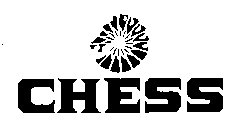
Chess Records was an American record company established in 1950 in Chicago, specializing in blues and rhythm and blues. It was the successor to Aristocrat Records, founded in 1947. It expanded into soul music, gospel music, early rock and roll, and jazz and comedy recordings, released on the Chess and its subsidiary labels Checker and Argo/Cadet. The Chess catalogue is owned by Universal Music Group and managed by Geffen Records and Universal Music Enterprises.
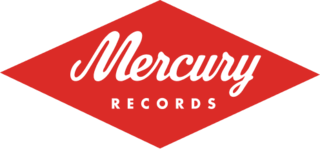
Mercury Records is an American record label owned by Universal Music Group. It had significant success as an independent operation in the 1940s and 1950s. Smash Records and Fontana Records were sub labels of Mercury. Mercury Records released rock, funk, R&B, doo wop, soul music, blues, pop, rock and roll, and jazz records. In the United States, it is operated through Republic Records; in the United Kingdom and Japan, it is distributed by EMI Records.

A bootleg recording is an audio or video recording of a performance not officially released by the artist or under other legal authority. Making and distributing such recordings is known as bootlegging. Recordings may be copied and traded among fans without financial exchange, but some bootleggers have sold recordings for profit, sometimes by adding professional-quality sound engineering and packaging to the raw material. Bootlegs usually consist of unreleased studio recordings, live performances or interviews without the quality control of official releases.

United Western Recorders was a two-building recording studio complex in Hollywood that was one of the most successful independent recording studios of the 1960s. The complex merged neighboring studios United Recording Corp. on 6050 Sunset Boulevard and Western Studio on 6000 Sunset Boulevard.
Milton Tasker "Bill" Putnam was an American audio engineer, songwriter, producer, studio designer, and businessman. He has been described as "the father of modern recording". He was the inventor of the modern recording console and is recognized as having been a key figure in the development of the postwar commercial recording industry.

A demo is a song or group of songs typically recorded for limited circulation or for reference use, rather than for general public release. A demo is a way for a musician to approximate their ideas in a fixed format, such as cassette tape, compact disc, or digital audio files, and to thereby pass along those ideas to record labels, producers, or other artists.

Steve Albini is an American musician, record producer, audio engineer, and music journalist. He was a member of Big Black, Rapeman, Flour, and is part of Shellac. He is the founder, owner and principal engineer at Electrical Audio, a recording studio complex in Chicago. It has been estimated that he has worked on several thousand albums over his career. He has worked with acts such as Nirvana, Pixies, Bush, Melt Banana, the Breeders, PJ Harvey, the Jesus Lizard, Godspeed You! Black Emperor, Gogol Bordello, Mclusky, and former Led Zeppelin members Jimmy Page and Robert Plant.
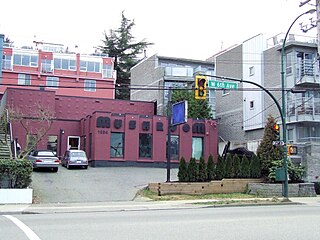
Mushroom Studios was a music recording facility located in Vancouver, British Columbia, Canada with a long history in Canadian music. It has now been relocated to Toronto, Ontario, Canada.
Kay Bank Studios, also known as Kay Bank Recording Corporation, was a recording studio and phonograph manufacturer based in Minneapolis.
Record One is a recording studio complex in the Sherman Oaks neighborhood of Los Angeles, California. Originally founded in 1979, the studio has been the site of numerous commercially successful and award-winning recordings. Since 2015, Record One has been under the ownership of Dr. Dre and his business partner Larry Chatman.
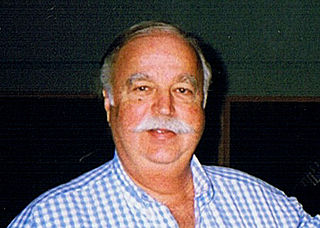
Bruce Swedien was an American recording engineer, mixing engineer and record producer. He was widely known for his work with Michael Jackson, Quincy Jones, Paul McCartney and Barbra Streisand.
Greenhouse Studios is a Canadian music recording studio founded by Bruce Levens in 1987 where over 1000 albums have been recorded in the last 25 years. Incorporated as Lions Gate Studios, it subsequently changed its name to Vancouver Studios before adopting its present name.
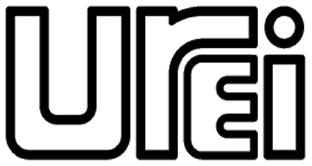
United Recording Electronics Industries (UREI) was a manufacturer of recording, mixing and audio signal processing hardware for the professional recording studio, live sound and broadcasting fields.

Universal Audio is an American company that designs, imports, and markets audio signal processing hardware and effect pedals, audio interfaces, digital signal processing, virtual instrument, and digital audio workstation software and plug-ins.
Sweetwater is an American musical instrument retailer. Based in Fort Wayne, Indiana, Sweetwater is the largest online retailer of musical instruments and pro audio equipment in the United States.

An audio engineer helps to produce a recording or a live performance, balancing and adjusting sound sources using equalization, dynamics processing and audio effects, mixing, reproduction, and reinforcement of sound. Audio engineers work on the "technical aspect of recording—the placing of microphones, pre-amp knobs, the setting of levels. The physical recording of any project is done by an engineer…"
Armstrong Studios, also known as Bill Armstrong's Studio and later renamed AAV, is an Australian commercial recording studio located in Melbourne, Victoria. During the decade from 1965 to 1975, Armstrong Studios in South Melbourne was arguably the top independent recording studio in Australasia.

Brian Vibberts is an American audio engineer, a native of Portland, Connecticut, who has been active since 1991. He is a 7-time Grammy Award winner and has participated in the making of numerous albums that have resulted in Grammy Award nominations and winners. Also known by the nickname, "Dr Vibb," he has creatively recorded or mixed many multi-platinum artists in many genres, including Michael Jackson, Aerosmith, The Pussycat Dolls, Bon Jovi, Natasha Bedingfield, Green Day, Trace Adkins, Faith Hill, Toby Keith, Ice Cube, Boyz II Men, Elton John, Eric Clapton, Chick Corea, Brad Paisley, Ringo Starr, Mariah Carey and Tony Bennett.
Edward Cherney was an American recording engineer and record producer, based in Los Angeles, California, United States. Over his career, he earned four Grammy awards, one Emmy Award, and five TEC Awards. Cherney was also known within the film world for his work on A Mighty Wind, The Bourne Legacy, and Fast Times at Ridgemont High.
References
- ↑ "Wasn't the Gold Coast once home to a world-famous studio?". Chicago Tribune. 12 August 2005. Retrieved 17 August 2021.
- 1 2 3 4 Cogan, Jim; Clark, William (2003). Temples of Sound: Inside the Great Recording Studios. San Francisco, United States: Chronicle Books. pp. 125–135. ISBN 0-8118-3394-1.
- ↑ "The Vitacoustic Label". Clemson.edu. Retrieved 25 August 2021.
- ↑ Weir, William (2012-06-21). "How humans conquered echo". The Atlantic . Retrieved 2021-08-24.
- ↑ "A Brief History of The Studio As An Instrument: Part 1 - Early Reflections". Ableton.com. Retrieved 24 August 2021.
- ↑ Journal of the Audio Engineering Society, Volume 37, Number 9, September 1989. An Afternoon With: Bill Putnam, Retrieved on May 6, 2009.
- ↑ Sutheim, Peter (September 1989). "An Afternoon With: Bill Putnam" (PDF). Journal of the Audio Engineering Society. 37 (9). Audio Engineering Society: 723–730. ISSN 1549-4950.
- ↑ "Phill Sawyer - recollections". precambrianmusic.com. Retrieved 17 February 2017.
- ↑ Benzuly, Sarah. "Murray Allen, 1930-2006". Mix Online. Future Plc. Retrieved 1 September 2021.